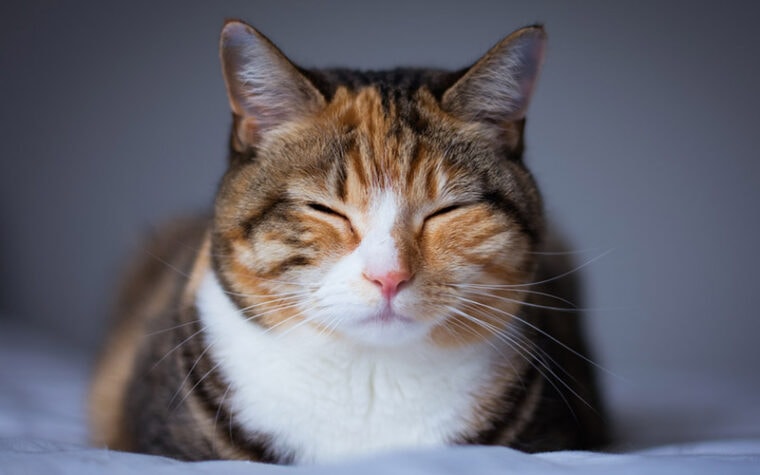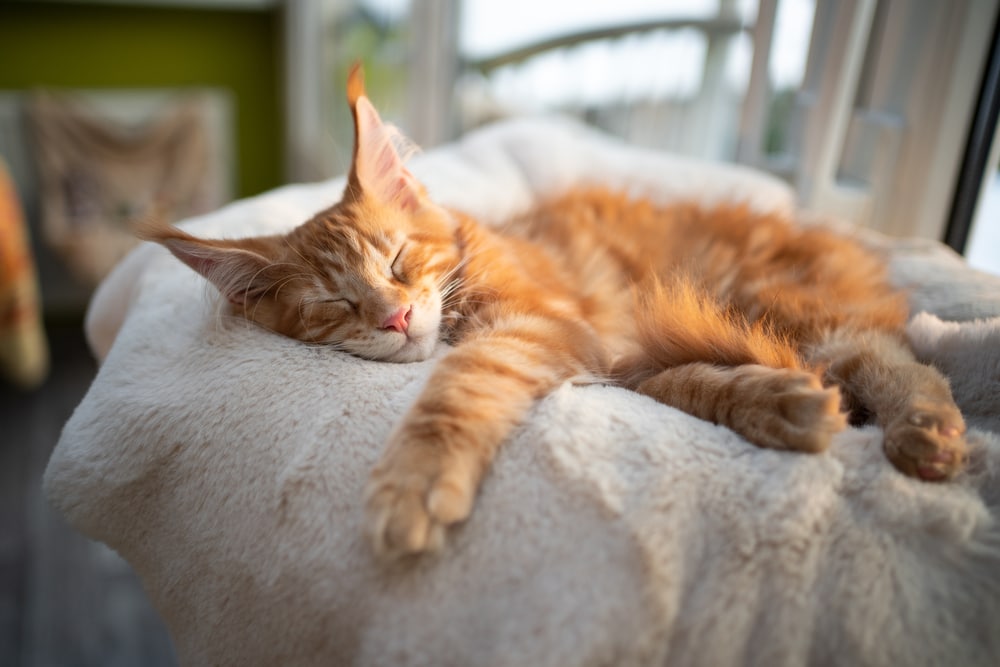
The sound of a cat purring is so relaxing to humans that you can even find it as an option in some white noise apps or machines. It might put you to sleep, but should you worry if your cat is purring and snoozing at the same time? It’s normal for cats to purr when they’re sleeping, although the reason why they’re doing it could be a cause for concern.
In this article, we’ll talk about how cats purr and why they may purr while sleeping. We’ll also discuss when you should worry about your cat purring—sleeping or awake.
How and Why Cats Purr
The process by which cats purr is still a bit of a mystery. Scientists believe the movement of air most likely produces the noise through the cat’s vocal cords. However, they aren’t exactly sure what exactly in the cat’s brain triggers the behavior.
Cats may purr when they are content but also when they are stressed or anxious. Purring can also indicate that a cat is sick or in pain.
Why Cats Purr When They Sleep
Purring is thought to serve several purposes, whether the cat is awake or asleep. It’s primarily a way for the cat to communicate emotions. Most owners assume their cat purring is a sign of happiness and contentment, and in many cases, that’s correct.
Cats can dream just like we do, and purring while they sleep may indicate that your kitty is having a happy dream. Sleeping cats may also purr because they’re feeling relaxed and contented or as a way to bond with housemates.
Bad dreams can also lead to your cat purring in its sleep; purring is a way to calm down and relieve stress. Another fascinating theory as to why cats purr in their sleep springs from the potential healing elements of this sound. Based on research, cats purr at a sound frequency known to promote bone and tissue healing.1 Sound therapy is used in human medicine for just these purposes.
Cats may purr while sleeping as a way of physically self-healing. Our kitties spend most of the day sleeping anyway, so why not use that time for some tissue repair?

When to Worry About Your Cat Purring While Sleeping
As we mentioned, cats may purr because they’re sick or in pain, including while they’re sleeping. If this is the case, you’ll most likely notice other concerning signs, such as:
Purring by itself isn’t an indication that you should be worried, but if you notice it happening frequently and accompanied by other symptoms, it’s time to take your kitty to the vet for an exam.
Some cats, especially flat-faced or overweight felines, may snore while they’re sleeping, which sounds very similar to purring. Snoring is usually normal but could indicate a problem if you notice other symptoms, including:

Conclusion
As we learned, it’s normal for cats to purr when they sleep, and they often do so for the same reasons as conscious kitties. Purring can indicate many emotions, both good and bad, as well as physical discomfort. Because cats are so good at hiding pain and sickness, we must be extra diligent to pay attention to even subtle signs that something is wrong.
Purring in their sleep can be one of those signs, but it’s usually not the only one. In many cases, your cat really is purring when they sleep because they’re happy and relaxed. Enjoy the purr because it just might be helping you relax too!
Featured Image Credit: Jack Brind, Unsplash







